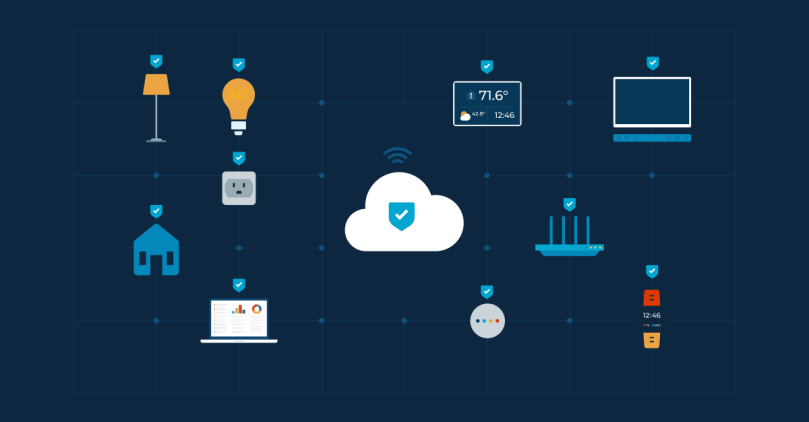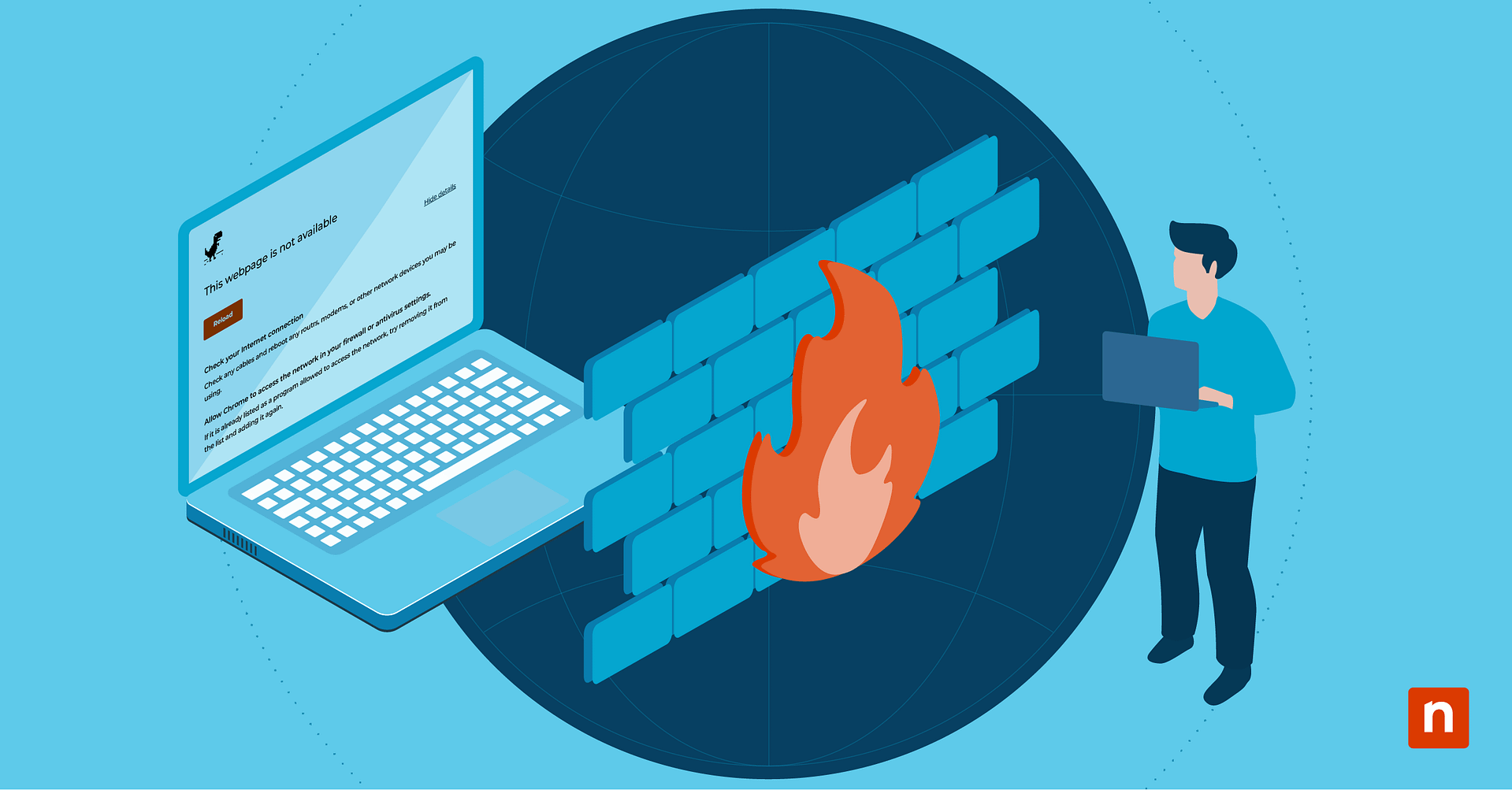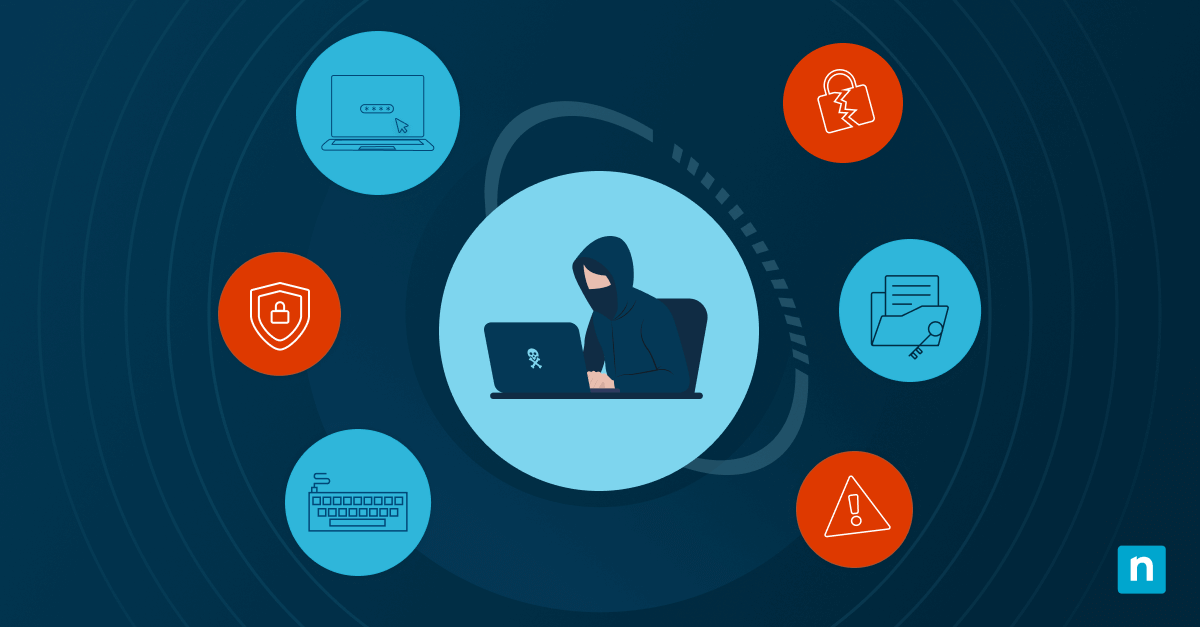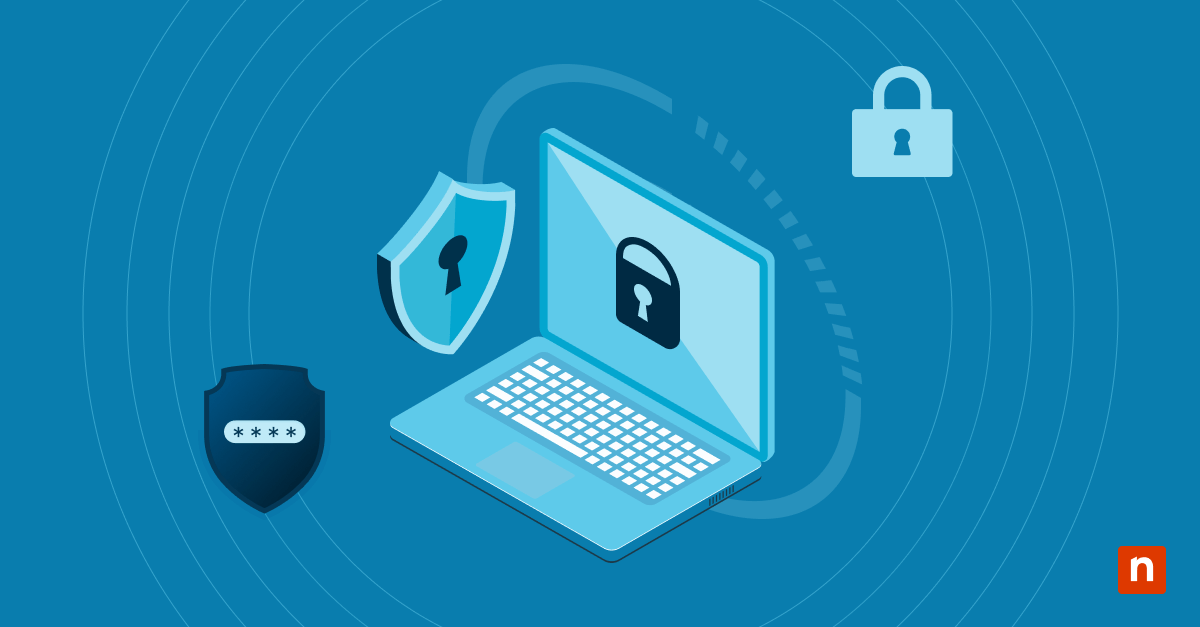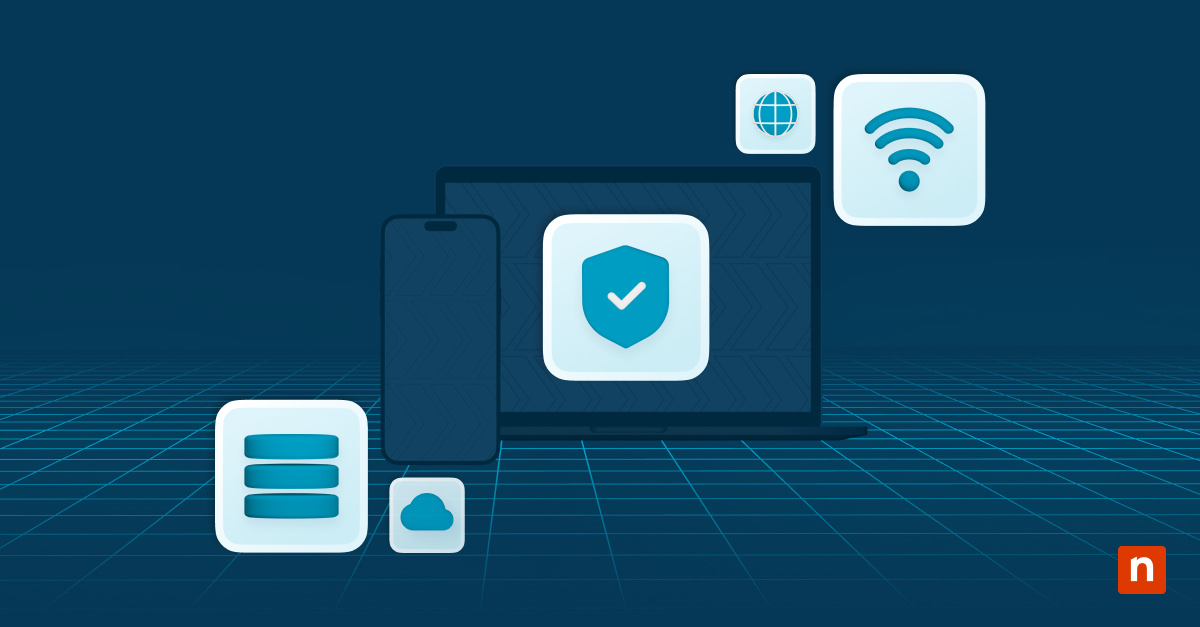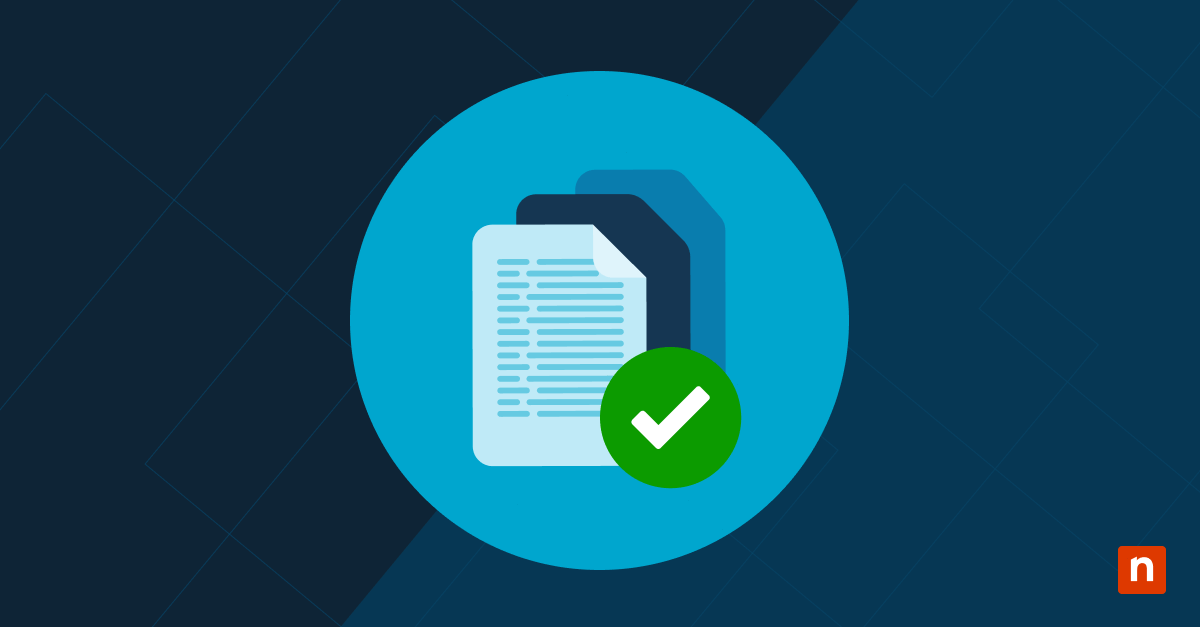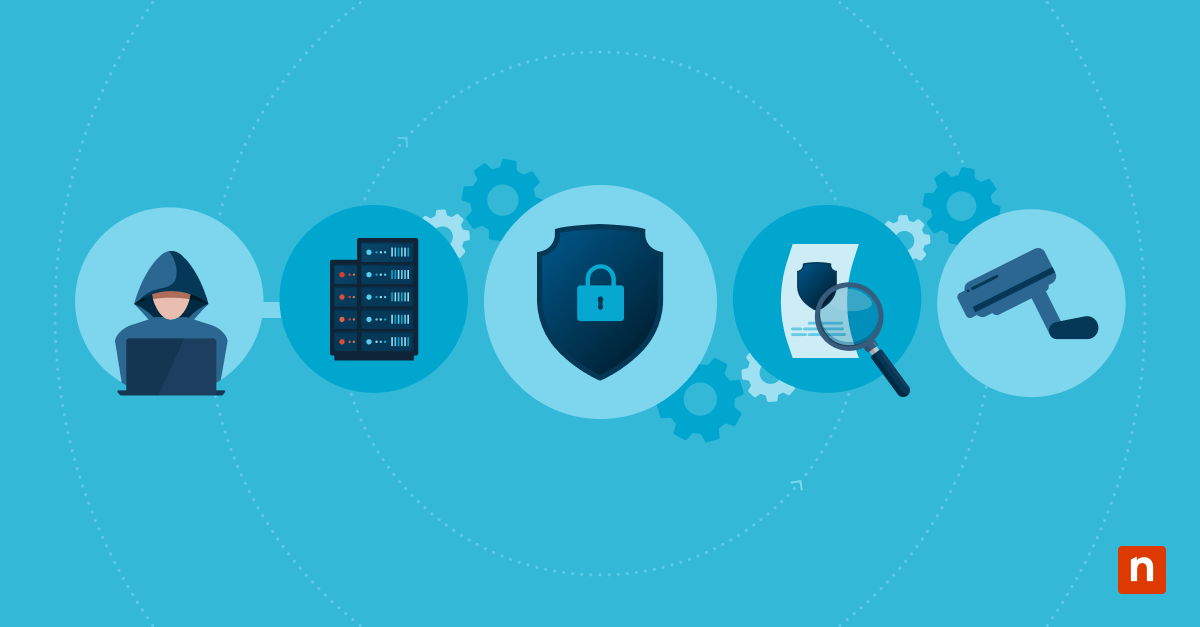In the last few years, the Internet of Things (IoT), along with IoE and IIoT, has taken technology to a whole new level. IoT is a system of devices that connect to the internet in order to communicate and function without human intervention. Just like any other endpoints, IoT devices also need to be secured and protected from IoT cyberthreats. Below, we’ll look into some ways to prioritize IoT security and how your MSP can approach it.
What is IoT?
The Internet of Things (IoT) is a system of connected devices that are embedded with sensors, software, and other electronic components that allow them to communicate and connect to each other. IoT has transformed technology and allowed it to integrate into various areas of life, from home appliances to transportation. The main purpose of IoT is to create seamless communication and collaboration between people and their technologies; essentially, allowing machines to do more heavy-lifting to make life easier and more comfortable for people at home and in the office.
How IoT affects businesses
Although IoT originally focused on improving everyday devices, such as appliances, cars, and thermostats, it’s recently become more focused on advancing business processes and technologies. Aspects of business that IoT devices affect include:
- Asset tracking & inventory management
- Data sharing and processing
- Creating new products & services
- Marketing strategies & analysis
How IoT affects MSPs
As businesses begin to incorporate IoT endpoints into their IT environments, they’ll need their MSPs to secure the devices. Securing IoT devices is now a part of endpoint security management, so MSPs will treat IoT devices just like any other endpoints. Even though IoT is a fairly recent invention, there are already plenty of cybersecurity threats targeting IoT endpoints. The Cyber Management Alliance points out five cyber-attacks to watch out for with IoT devices:
- Data theft
- Phishing
- Spoofing
- Denial of service (DDoS)
- Ransomware
By securing IoT devices, MSPs can help businesses prevent these cyberattacks and protect their IT environments.
Why is IoT security important?
As more organizations adopt IoT frameworks, they will need MSPs to secure their IoT devices. Securing IoT devices is just as important as securing all your other endpoints. As a matter of fact, because cybercriminals see IoT devices as “easy targets,” securing IoT devices needs to be a priority within every organization. By focusing on IoT frameworks, MSPs can :
-
Secure devices
No business or MSP intentionally uses unsecured devices. Especially since cybercrime will continue to rise for the next five years, MSPs and organizations need to take action to ensure that all endpoints, including IoT devices, are secure and protected.
-
Protect data
According to FrameworkIT, “60 percent of small businesses that experience significant data loss are forced to close within six months of the disaster.” Since IoT devices transfer data, they are vulnerable to attack. IoT security protocols protect data to ensure that it remains in the right hands.
-
Manage device health
Viruses, malware, and other harmful bugs take a toll on devices’ health and performance. To keep IoT devices in optimal condition, it’s important to monitor, manage, and secure them.
-
Increase visibility
All the best endpoint management solutions often speak about their ability to provide visibility. Visibility is key to managing and maintaining a productive and efficient IT environment. If you can’t see a device, you can’t secure it. Security and visibility go hand-in-hand, so when securing your IoT devices, you also gain additional visibility into your IT environment as a whole.
3 essential IoT security tips for MSPs
All the benefits of securing IoT endpoints sound helpful, but how exactly can MSPs begin securing these devices? Here are some IoT security tips for MSPs to keep in mind:
Tip 1: Change default passwords
Although changing default passwords might sound like a no-brainer, it is common for businesses to forget to change them after receiving their IoT devices. Changing default passwords and following IoT password best practices is one way to secure these endpoints.
Tip 2: Monitor and manage devices
A common IoT security challenge is gaining visibility and control over these devices. Since IoT endpoints connect to your network, you’ll want just as much control over them as you have over laptops, servers, and other connected endpoints. To gain the visibility that’s necessary to control these devices, use an endpoint monitoring and management solution.
Tip 3: Encrypt confidential data
If IoT devices handle confidential or critical information, ensure that data is encrypted. As ALSO explains, “Very few devices use encrypted communications as part of their initial configuration. They are more likely to use normal web protocols that communicate in plain text, which makes it easy for hackers to observe them and spot weaknesses. This is why it is crucial for all web traffic to use HTTPS, transport layer security (TLS), Secure File Transfer Protocol (SFTP), DNS security extensions, and other secure protocols when communicating over the internet.”

